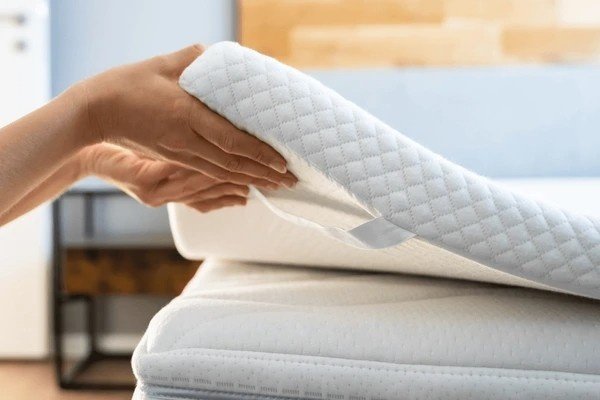As a student, choosing the right laptop is more than just about brand names or looking at fancy specs on paper. It’s about finding a machine that fits your personal needs, whether you’re doing research, creating presentations, or even just enjoying some downtime with a movie or video game. I’ve been through the process myself, so I understand how overwhelming it can be. With so many models on the market, how do you decide which one is best for your unique situation? Don’t worry. I’ve put together this guide to help you make an informed decision.
Table of Contents
Why a Good Laptop Matters for Students
We live in an era where almost everything, from lectures to assignments, is done on a computer. A laptop that’s too slow, too heavy, or doesn’t have the features you need can make your academic life a lot harder. A well-suited laptop helps you stay productive, organized, and connected. Whether you’re in the library, a coffee shop, or at home, a portable and reliable laptop becomes your study companion. It’s essential to choose wisely.
What to Look for in a Laptop for Students
When I started looking for my own student laptop, I realized there are several key factors to consider. What’s important for one person may not be as crucial for someone else, so understanding your priorities is the first step.
Performance: Processing Power and Speed
A laptop with solid performance is crucial for running multiple applications at once—whether you’re browsing the web, working on a document, or listening to music. You don’t want to deal with lag or freezes during an important task.
Look for a laptop with at least an Intel Core i5 processor or AMD Ryzen 5. These provide the perfect balance between power and price. For tasks like web browsing, document editing, and light multitasking, these processors are more than enough.
If you’re into gaming or video editing, you may need a more powerful CPU, like an Intel Core i7 or Ryzen 7. These processors are fast and efficient, but they’ll also cost a bit more.
Battery Life: Stay Powered Through the Day
As a student, you don’t always have access to a charger, so battery life is crucial. I prefer a laptop that lasts at least 8 hours on a single charge. This is especially important for long study sessions or taking the laptop to class or library without needing to worry about running out of juice.
Most students don’t need gaming-level battery life, but having a laptop that can last through an entire day of schoolwork is essential. The longer the battery, the better.
Portability: Light and Easy to Carry
The weight and size of your laptop matter, especially if you need to carry it from one class to another or commute to school. A lightweight laptop is easier on your shoulders, and it makes a difference if you need to travel long distances.
I prefer laptops with screens between 13 and 15 inches. They offer a good balance of portability and a decent display size. You don’t need to carry a heavy 17-inch laptop unless you plan to use it for gaming or media production.
Storage: SSD vs. HDD
When choosing storage, it’s better to go for an SSD (Solid State Drive) rather than an HDD (Hard Disk Drive). SSDs are much faster and more reliable, making them the better choice for students. You’ll notice faster boot-up times and quicker file transfers with an SSD.
The minimum storage I recommend is 256GB SSD. It’s enough for everyday tasks like documents, presentations, and school projects. If you’re dealing with heavy files, like video editing or large research datasets, you may want to consider a 512GB SSD or even more.
Display: Clarity and Comfort
You’re going to spend a lot of time staring at your laptop screen, so it’s essential to find one with a good display. A 1080p resolution (Full HD) is standard and should provide a sharp and clear image. Look for laptops with anti-glare screens if you plan to use your laptop outdoors or in bright environments.
Keyboard and Trackpad: Comfort for Long Study Sessions
As a student, you’re going to type a lot—essays, reports, assignments—and that means a comfortable keyboard is essential. Key travel, spacing, and feedback all contribute to how comfortable a keyboard is to type on. A laptop with a decent-sized keyboard and responsive keys can make typing more comfortable.
The trackpad should also be smooth and responsive. A poor-quality trackpad can hinder productivity, especially when you need to quickly switch between apps or scroll through documents.
Ports and Connectivity
You’ll need a few different ports on your laptop, like USB ports for connecting accessories (mouse, flash drive), HDMI for connecting to external displays, and a headphone jack. Some newer laptops may only have USB-C ports, which are fast but may require adapters if you have older devices.
Wi-Fi 5 or Wi-Fi 6 connectivity is also important to ensure you get a reliable internet connection for research, streaming, and video calls.
Budget: Finding the Right Price Point
As a student, budget will likely be a big consideration. There are plenty of options out there, and you don’t need to break the bank to find a good laptop. I’ve found that you can get a reliable laptop with decent specs for around $500 to $800.
If you need more power or specific features (like gaming capabilities), you might need to look at higher-priced models in the $1,000 to $1,500 range. However, don’t feel pressured to buy a top-tier model unless you truly need it.
Operating System: Windows vs. macOS vs. Chrome OS
The operating system you choose depends on your personal preference and the type of work you’ll be doing. Here’s a brief breakdown:
- Windows: The most common operating system for students. It’s compatible with a wide range of software and hardware, and it’s ideal if you plan to use Microsoft Office, run engineering software, or need flexibility in your setup.
- macOS: Known for its sleek design and user-friendly interface. It’s great if you prefer an Apple ecosystem, but it can be more expensive than Windows laptops.
- Chrome OS: Found on Chromebooks, Chrome OS is simple, lightweight, and fast. If you primarily use web-based applications (like Google Docs, spreadsheets, and browsing), a Chromebook could be a solid choice.
Comparison Table: Best Laptops for Students
Here’s a quick comparison table with a few options I’ve personally reviewed based on performance, battery life, portability, and price.
| Laptop Model | Processor | Storage | Battery Life | Weight | Price Range |
|---|---|---|---|---|---|
| Dell XPS 13 | Intel Core i5/i7 | 256GB SSD | 12 hours | 2.7 lbs | $900-$1,400 |
| Apple MacBook Air | Apple M1/M2 | 256GB SSD | 15 hours | 2.8 lbs | $999-$1,300 |
| HP Envy 13 | Intel Core i5/i7 | 512GB SSD | 10 hours | 2.88 lbs | $800-$1,200 |
| Lenovo IdeaPad 5 | AMD Ryzen 5 | 512GB SSD | 8 hours | 3.3 lbs | $600-$900 |
| Asus VivoBook 15 | Intel Core i5 | 256GB SSD | 8 hours | 3.75 lbs | $550-$700 |
| Google Pixelbook Go | Intel Core i5 | 128GB SSD | 10 hours | 2.3 lbs | $650-$800 |
Final Thoughts
Choosing the best laptop for your needs as a student comes down to understanding your own priorities. Consider how much power you need, how long you’ll be using the laptop each day, and what kind of portability fits your lifestyle. By following the guidelines and weighing your options, I’m confident that you’ll be able to make a well-informed decision and find a laptop that serves you well throughout your academic journey.
The key is to balance performance, battery life, and budget—without getting distracted by fancy extras. Whether you’re using it for assignments, research, or simply browsing, your laptop should be a tool that supports your productivity and learning, not a source of stress. Happy laptop hunting!





